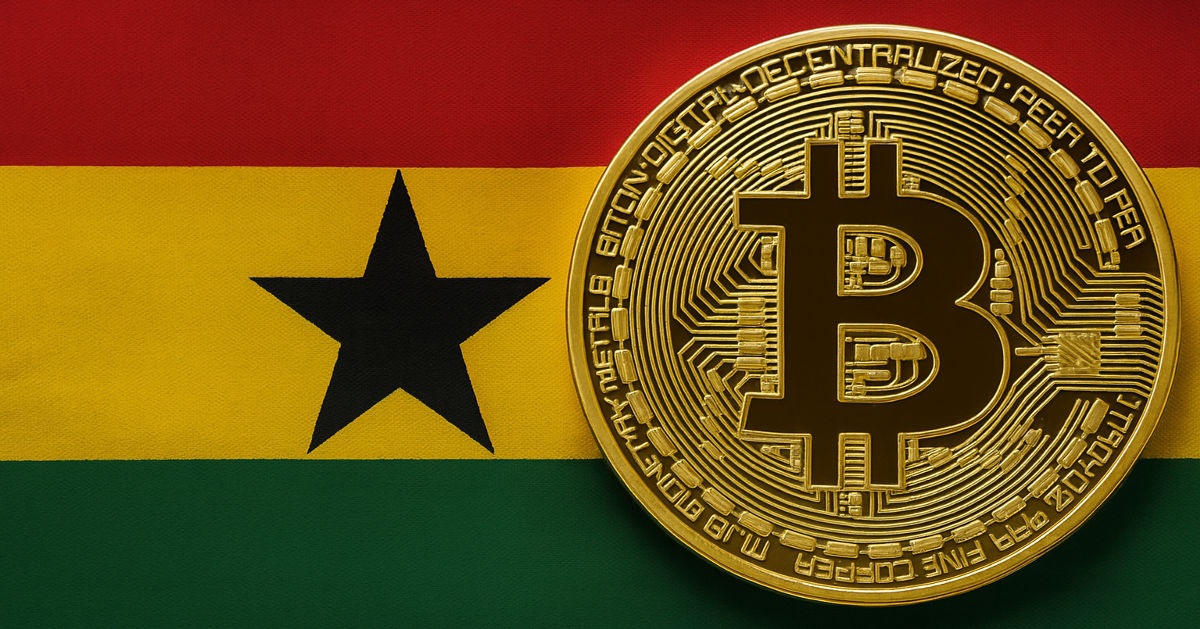Ghana Moves to Regulate Crypto Industry Before Year-End


Ghana is moving closer to establishing a regulatory framework for cryptocurrencies, with the Bank of Ghana (BoG) announcing plans to have crypto legislation in place by the end of the year.
This was revealed by the Bank of Ghana governor, Johnson Asiama, while speaking at the International Monetary Fund’s annual meetings in Washington, that the country has made significant progress over the past four months in developing a comprehensive regulatory environment. “That bill is on its way to parliament, and hopefully before the end of December, we should be able to regulate cryptocurrencies in Ghana,” he stated.
Earlier, the central bank had set a September deadline for finalizing the regulations and even released draft guidelines in August 2024 to solicit public feedback. Asiama emphasized, however, that implementing laws is only the beginning. “The ability to monitor crypto flows will be key. We are developing the expertise and manpower to manage this space effectively. It is an important area we can no longer ignore,” he added.
Register for Tekedia Mini-MBA edition 18 (Sep 15 – Dec 6, 2025): registration continues.
Tekedia AI in Business Masterclass opens registrations.
Join Tekedia Capital Syndicate and co-invest in great global startups.
Register for Tekedia AI Lab: From Technical Design to Deployment.
The Bank of Ghana has traditionally maintained a cautious approach to digital assets, warning citizens that cryptocurrencies are not legal tender and advising them to transact only with central bank–backed money. However, growing adoption rates in the country have made regulatory oversight increasingly urgent.
Millions of citizens are reportedly embracing crypto assets for payments, savings, and investment, as data from Demandsage reports that more than 3 million Ghanaians, or approximately 8.9% of the population, currently engage with crypto in some form. Between July 2023 and June 2024, the country recorded roughly $3 billion in crypto transactions, reflecting strong grassroots adoption and growing public confidence.
BoS governor Asiama noted that such widespread usage has made it impossible for policymakers to “leave it unregulated,” stressing the need for oversight to prevent potential abuse and illicit activities. Once the crypto legislation has been enacted,

As part of its broader digital finance strategy, the BoG is also operating a regulatory sandbox, which allows selected companies to test and innovate with cryptocurrency-related products under controlled conditions. Industry experts have lauded the central bank’s call for swift action, after earlier warnings that the country risks falling behind its peers if it fails to act.
“The digital train has left the station. Nigeria, Kenya, South Africa, and Rwanda are already miles ahead in piloting CBDCs, launching regulated crypto exchanges, and issuing digital asset licenses. Inaction is a policy, and currently, our inaction is costing us through loss of tax revenue, exposure to illicit flows, and a stifled youth-led digital economy operating outside”, said Isaac Simpson, senior head of financial advisory and equity capital markets at Stanbic Bank Ghana.
The move by Ghana to have crypto regulations by the end of the year follows closely on the heels of Kenya’s approval of its Virtual Asset Service Providers (VASP). Earlier this month, the East African country introduced a clear licensing framework to regulate virtual asset service providers and address the risks associated with the misuse of virtual asset products and services.

The gradual licensing of crypto across several African nations represents a mature policy evolution from fear and bans to structured adoption. For years, many African governments treated cryptocurrencies with suspicion, warning citizens against their use.
By introducing licensing frameworks and regulatory bills, these nations are acknowledging crypto as a legitimate part of the financial system. This wave of regulation shows an emerging digital policy race. Notably, this could lead to regional harmonization of crypto laws, improving cross-border trade and payments within Africa, especially under the African Continental Free Trade Area (AfCFTA).





